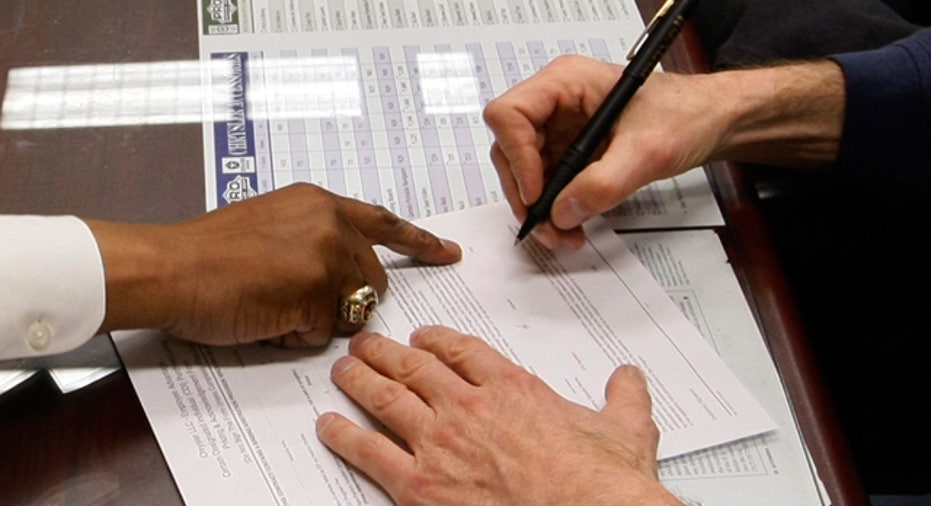Student Loan Co-Signer on the Hook for Delinquency

Dear To Her Credit,
I co-signed a student loan for my husband in 2005. I regret doing so, because it did go into default after my husband lost his job. I feel down about it because I always had excellent credit. I know I should have continued to make the payments myself, but it's a long story. The collectors suggested to my husband that he take out a bank loan to pay off the student loan. If we do that they would cut the balance in half, down to $16,000. None of the banks wanted to give my husband a loan because he has no credit, everything is only on my name.
Should I try to get a loan to pay this student loan off? It's very important that I buy a home. I am a pharmacist, so money is not a problem and I am paying all my bills on time. I don't want my husband's student loan to prevent me from buying a home.
-Sheila
Dear Sheila,
Many couples try to maintain two separate credit profiles -- one with all the good credit items, and one to dump all the not-so-good credit items in. This plan is especially tempting if one spouse's credit and income are more challenged to begin with, as is true in your case.
It's not a bad idea to keep your credit separate while one spouse is trying to clean his credit history up. However, allowing his credit to languish and even take the hits for bad credit decisions, while you build up a good credit history with accounts that both of you actually use, will cause problems in the long run.
One reason it's important to build up both of your credit scores is that if, heaven forbid, something happens to you or to your marriage, your husband is in big trouble. Without a decent score of his own, he wouldn't be able to get credit or even possibly a decent place to live. He's in a very vulnerable position.
Another reason is that if you intend to buy a house with your husband, you may need to claim both of your incomes to qualify. You won't be able to do that if his credit score is in the basement.
Even if you try to buy a house completely on your own, the bad news is that because you co-signed on the student loan, it has negatively affected your credit. You can't let it go to settlement without hurting both of your credit scores. In fact, since it has already gone into collection, it has no doubt lowered your scores.
When you co-sign on a loan, it's yours as well as his. No matter how you feel about the whole sorry deal, the fact remains that if your husband doesn't pay, you are obligated to do so.
If you apply for a mortgage with a compromised credit score, you will probably pay a higher interest rate than you would otherwise. Even a very small difference in the interest rate makes a huge difference in the life of the loan. That $8,000 you would save by settling the student loan can easily cost you many times more in higher interest charges.
That's why I recommend that you use your good income to just pay off this debt, in full, as quickly as you can. After you resolve the debt, you may have to wait before you qualify for the best interest rate on a mortgage. The late payments don't disappear off your credit reports for seven years, even when you pay off the debt. However, a debt paid in full is far less damaging than an outstanding or settled debt. In addition, the further away you get from the dates of the delinquencies, the less they will affect you.
The time to fret about taking on the responsibility of a student loan for someone else is before you sign on the line. I'm sure it's disappointing to both of you that your husband's career investment hasn't paid off yet. That's all in the past, however. It's time to move on, and to take care of your credit.
See related: Can you remove co-signed loans from credit reports?



















